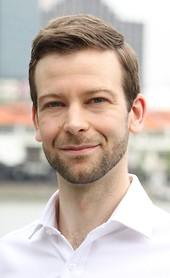Violent extremism and acts of terrorism pose a severe threat to a country’s political culture, social as well as economic development and ultimately, its political stability. This is the case for all forms of violent extremists, no matter what motivates them in the first place. Preventing and countering violent extremism (P/CVE) has therefore become a crucial aspect of politics in order to ensure societal peace, stability and inclusivity. In order for this to be successful, such attempts must involve all stakeholders from government bodies, police, civil-society groups, community leaders, academics to businesses and the media – a real whole-of-society approach. Therefore, the focus of this year’s Asia-Europe Counter-Terrorism Dialogue of the KAS Regional Programme Political Dialogue Asia and the S. Rajaratnam School of International Studies was on "Collaboration between the State and Civil Society Organizations on Preventing and Countering Violent Extremism". The event took place from 17 to 19 September 2019 in Kuala Lumpur / Malaysia.
Malaysia’s Foreign Minister YB Dato’ Saifuddin Abdullah delivered the keynote address of the meeting. In his remarks, the Minister emphasized the necessity to create a stronger awareness that government agencies and civil-society organizations (CSO) need to fight violent extremism and terrorism collaboratively. According to the Minister, this is mainly due to three reasons. Governments are often not doing well in explaining what is right and what is wrong. CSOs and academics are better in communicating issues related to extremism and sending out messages to the targeted audiences. CSOs in many cases have a better expertise in the local issues and know the situation on the ground. Thirdly, CSOs can validate information as they might detect even minor changes in persons or the community – be it that people have radicalized further or became more moderate. Since radicalization is a process, organs of the state have to constantly adapt and verify whether their assumptions as well as definitions are still correct. The Minister stressed that this does not mean that we need a very strict work division between governments and CSOs, but rather more collaboration and especially genuine consultations.
Following the Minister’s remarks, a panel of high-ranking experts discussed their experiences from working with civil-society organization. This included H.E. Hekmat Karzai, Chairman of the Centre for Conflict and Peace Studies and former Deputy Foreign Minister of Afghanistan, Dina Zaman, Founding Member of IMAN Research, and Guenther Sablattnig, Advisor to the EU Counter-Terrorism Coordinator.
In addition to the public keynote session, the three-day dialogue included a one-day workshop attended by 30 civil-society organizations from Indonesia, Malaysia, Singapore, the Philippines and Europe. On the second day, the civil-society organizations were joined by 30 representatives from government agencies, ministries and law enforcement units to build trust and identify ways to enhance the collaboration among them on P/CVE. They discussed how cooperation between the state and CSOs can be improved in the areas of community engagement, tackling the online threat, and de-radicalization as well as rehabilitation. On the last day, the chief counter-terrorism experts of the governments of Afghanistan, Belgium, Germany, Indonesia, Malaysia, Pakistan, the Philippines, Sri Lanka and the European Union had a closed-door session with strategic updates on the current extremist and terrorist threat landscapes in their respective countries and regions.
The discussions throughout the programme showed that both stakeholders have different but complementing capacities. While the state can create an environment or framework conducive to a whole-of-society approach and coordinate the various efforts by setting up structures, civil-society groups are closer to the affected communities and can bridge the gap that often exists between the people and the state. The involvement of different stakeholders will also ensure that both soft and hard measures are used when preventing and countering the threat.
For this to work, confidence and trust between government agencies and civil society groups must be increased and expectations must be kept realistic in order to avoid disappointments. The state must also conduct a proper vetting process to ensure that CSOs follow the laws, do not infiltrate the system or actually assist the extremist groups. Likewise, the state must allow the CSOs to act freely, not interfere in their work and should not use them as proxy actors to drive its own agenda or spy on the communities.
Participants also called for closer regional cooperation on P/CVE – not only among governments but also among and together with civil-society organizations. Collaborative approaches must not stop at borders and through closer exchanges between countries, transnational activities of extremist groups can be identified more easily. Since terrorists do not respect borders and have close transnational ties, it is important that governments and civil-society groups also improve their network.
The Regional Programme Political Dialogue Asia of the Konrad-Adenauer-Stiftung and the S. Rajaratnam School of International Studies (RSIS) have been organizing the annual Asia-Europe Counter-Terrorism Dialogue since 2015. The aim of the project is to enhance international collaboration and dialogue among all stakeholders involved in countering terrorism and violent extremism. The target groups of the Dialogue are the chief counter-terrorism experts of the respective country’s governments, governmental advisors and civil-society organizations working in the different communities. Besides the annual meeting, the project has so far produced three publications which provide insights into the new forms of terrorism and opportunities to counter violent extremism.
Topics
About this series
The Konrad-Adenauer-Stiftung, its educational institutions, centres and foreign offices, offer several thousand events on various subjects each year. We provide up to date and exclusive reports on selected conferences, events and symposia at www.kas.de. In addition to a summary of the contents, you can also find additional material such as pictures, speeches, videos or audio clips.









